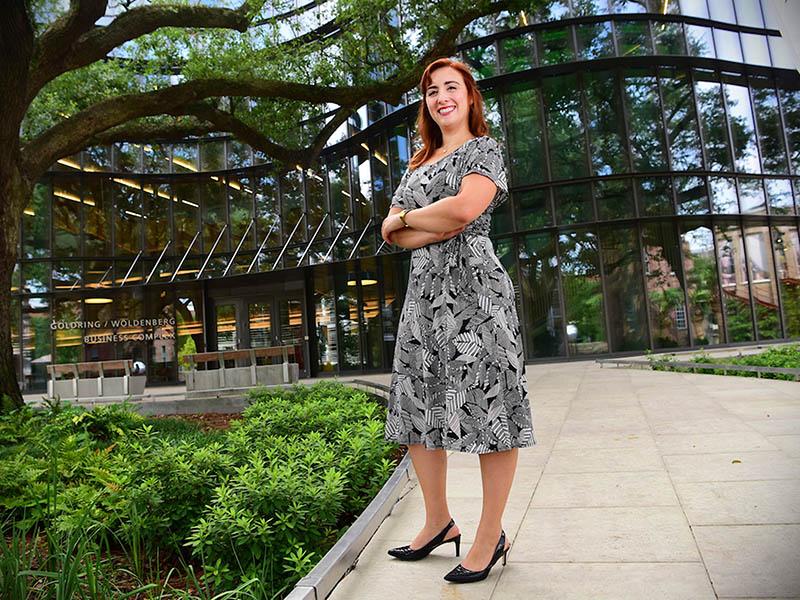Accessibility, diversity among Tulane’s priorities
Tulane University is demonstrating its commitment to equal access and diversity by expanding the services available to students, faculty, staff and visitors with disabilities.
While Tulane will continue to improve accessibility for students through the Goldman Center for Student Accessibility, Kathryn Fernandez, the new executive director for campus accessibility and ADA/504 coordinator, has a vision of how the university can better serve its employees and the community members who enjoy Tulane’s campuses.
“I am here to serve as a resource not only for individuals who may need accommodations, but also for department supervisors who may not be familiar with the law regarding people with disabilities or what their requirements are in terms of accommodating a member of their staff,” said Fernandez, who is the first person to hold the newly created position.
“I am here to serve as a resource not only for individuals who may need accommodations, but also for department supervisors who may not be familiar with the law.”
— Kathryn Fernandez
Accommodations for employees, she said, may come in many forms, such as software that reads text for someone with vision problems, devices that amplify sound for someone with hearing issues, or office layout changes to make someone with a physical disability more comfortable in their workspace.
Recognizing that not all people want to share personal information with their co-workers, Fernandez stresses that requests for accommodations remain confidential and the reasons for the request are not disclosed without the requestor’s permission.
Prior to taking on her role at Tulane in March, Fernandez worked as an attorney for the Advocacy Center of Louisiana, a nonprofit legal services agency serving people with disabilities, where she litigated civil rights cases and supervised a team of advocates.
Fernandez outlined three primary goals for her first year.
The first goal is to create an online request system for employees similar to the portal currently available for students to request reasonable accommodations. Next, she wants to work with the university’s information technology staff to ensure that all campus technology is fully accessible.
Lastly, Fernandez plans to survey campus buildings to see how accessibility for those with physical disabilities can be improved.
“Our newer buildings were built after the Americans with Disabilities Act was passed, and so were constructed with accessibility in mind,” said Fernandez. “However, a lot of our older buildings pre-date the current standards for accessibility. Updating those buildings is a concrete way to show that accessibility and diversity are priorities here at Tulane.”
Before the online portal for faculty and staff becomes available this fall, employees can email Fernandez directly at kfernandez@tulane.edu with their requests for accommodations.

